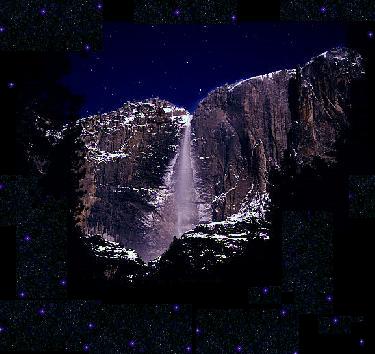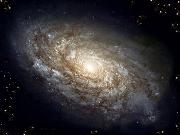Observe the dawning of the PANTHEIST AGE, a new world reconciliation based upon

Revering the Universe, Protecting Nature, Celebrating Life


A religion old or new, that stressed the magnificence of the universe as revealed by modern science, might be able to draw forth reserves of reverence and awe hardly tapped by the conventional faiths. Sooner or later, such a religion will emerge.
Carl Sagan, Pale Blue Dot
(1994).
Pantheism is the synthesis which transcends both theism and atheism; its major tenet is that the Universe is the ultimate reality and the most worthy object of reverence, while Nature is a sacred manifestation of the Totality, or All-One, in which all things are inseparable components.
It is an ancient religion -older than Buddhism or Christianity- and may already count hundreds of millions among its members. Most Taoists are Pantheists, along with many Chinese, Japanese and Western Buddhists, deep Ecologists, Pagans, Animists, followers of many native religions, and many Unitarian Universalists. The central philosophical scriptures of Hinduism are pantheistic. Many Atheists and Humanists may be Pantheists without realizing it.
The more contemporary forms of Pantheism, such as Scientific or Natural Pantheism, do not believe in mythical deities, supernatural entities or powers, but they do consider the Universe/Cosmos to be Divine. Divinity does not refer to an objective property of the Universe, but to an aspect of one's spiritual relationship with it - one's deepest awe and recognition of the mystery, power, and ineffable beauty of All That IS.
The Once and Future World Religion

Long ago Pantheism overspread the world. Yet contemporary reference books contain scant mention of the religion. How could a once universal faith go so little recognized today? And how could Pantheism go worldwide again tomorrow?
Scholars conjecture that a sense of divinity in Nature co-evolved with the first emergence of human consciousness, perhaps 100,000 years ago. The earliest god was Nature. "As far back as we are able to look into the past," says historian Colin Wilson, "human beings seem to have worshipped nature, and connected it to a higher spiritual reality, which they called god or the divine." Such pantheistic intuition predates all known religions of recorded history and probably prevailed for many thousands of years.
Gradually humans elaborated on the sense of an immanent creative force in Nature. They invested individual natural features like mountains, trees, and thunder with divinity, which led to polytheism. Later still, monotheism supplanted natural divinities with a single supernatural entity above and beyond Nature. Nature became profane. Revering the Earth became a heathen heresy. Monotheism effectively demonized Pantheism in the Middle Ages and, to this day, Pantheism retains a residual stigma of orthodox opprobrium that helps to explain its infrequent recognition.
The rise of scientific inquiry brought Pantheism back to life. In the 19th century, Science reduced everything to material elements working through ascertainable natural laws. However, modern science has found that all matter consists of incredible vibrating energy. From quarks to quasars, science reveals a Universe infinitely more wondrous and mysterious than any supernatural world envisioned by Man. By reestablishing the natural world as the preeminent source of awe and wonder, and by disclosing the myriad miracles of existence, science rekindles reverence for life and being. The idea of god as ‘Nature and its creative forces’ dovetails with the latest scientific discoveries. The synergy between science and Pantheism bodes well for the future of Pantheism..
So does environmentalism. Since Earth Day in 1970, ecological issues have gained widespread public attention. Some progress has been made, but global pollution, habitat destruction and accelerating extinction rates keep Nature on the front page. More and more people recognize the connection between biodiversity and human well being . Conservation organizations, outdoor writers, ecotours, and field guides popularize the love of Nature. Humans hold sacred what they most dearly love and value, and thus Pantheism often arises from personal experience in Nature. Many current titles explore this theme, including: The Sacred Earth; Writers On Nature & Spirit; and The Soul Unearthed, Celebrating Wildness & Personal Renewal Through Nature. The continued growth of environmentalism and the flowering of Pantheism go hand in hand.
Pantheistic ideas have also expanded into popular culture. Gallup reports ever-growing numbers of people engaged in "an intensive spiritual search and a continuing desire for inward and spiritual growth." Web sites, song lyrics, and self help books strive to recapture a sense of the sacred that is currently missing in many lives. National bestsellers like Hymns To An Unknown God and Spiritual Literacy strum several pantheistic chords.
As the bedrock religion of humanity, Pantheism could be bulldozed, but not banished, by later world religions. Eastern faiths including Hinduism, Buddhism, and Taoism retained thin layers of Pantheism and they never abandoned a sense of unity with Nature. Early Christianity contained outcrops of Pantheism; Saint Francis of Assisi celebrated the natural world and kinship with all life.
The environmental crisis has triggered reinterpretation of biblical texts to emphasize "caring for creation." Works on ecology and theology pouring forth from religious publishing houses contain decidedly pantheistic overtones. For example, one writer suggests that "God can be envisioned not as a king or ruler external to the universe but as the sacred whole of the universe itself." Another states "The cosmic process is within God, and God is within the cosmos as the ultimate power of life." Still another observes "The voices, coming from varying religious traditions, call us to move from a paradigm of domination, fear, and alienation to a paradigm of partnership, mutuality, and reverence for all living things, wherein spiritual values are reclaimed and divine immanence is reaffirmed." The continuing quiet pantheization of mainstream religion has the potential to contribute substantially to the sanctity and safekeeping of the world.
Of course, monotheism took several hundred years to suppress the sense of divinity in Nature, and it could take several hundreds years more to fully restore sacrality to the natural world. But Pantheism holds the promise to once again become a significant world religion. In subtle ways it already is.
The persistence of Pantheism springs from its deep-seated connection to the human heart and mind. Pantheism is a part of human nature, the natural religious disposition of humankind. As Christian writer Robert Burrows acknowledges:
"The religious options open to humanity are limited: We can believe in no God and be atheists. We can believe in one God and be theists. Or we can believe that all is God and be pantheists. Of these three, pantheism has been humanity’s major preoccupation throughout history... because, as C.S. Lewis observed, "it is an attitude into which the human mind automatically falls when left to itself."
Actually, Pantheism is an attitude into which the human mind automatically soars when left to itself, and more people than ever are spreading their pantheistic wings to fly.
Copyright © 1999 Gary Suttle
e
Gradually humans elaborated on the sense of an immanent creative force in Nature. They invested individual natural features like mountains, trees, and thunder with divinity, which led to polytheism. Later still, monotheism supplanted natural divinities with a single supernatural entity above and beyond Nature. Nature became profane. Revering the Earth became a heathen heresy. Monotheism effectively demonized Pantheism in the Middle Ages and, to this day, Pantheism retains a residual stigma of orthodox opprobrium that helps to explain its infrequent recognition. xt.

Without the body, the wisdom of the larger self cannot be known.
- John Conger
(Click icons for your Media Player to play streaming orchestral music
Do not, I beg you, look for anything behind phenomena. They are themselves their own lesson. - Goethe
And oh, if there be an
Elysium on Earth.
it is this, it is this!
- Thomas Moore
(1779-1852)







mouse over image

THE
SPIRITUAL
EXPERIENCE
OF NATURE
AND THE
COSMOS






